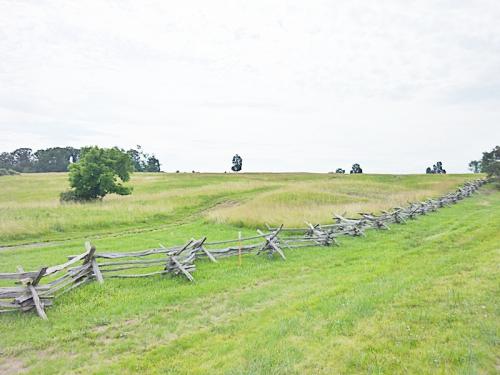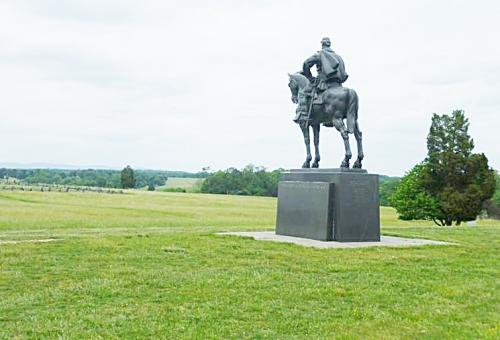Was He A Little Drummer Boy?
We moved to the Manassas, Virginia area in 1988. We currently reside in Bristow, a couple of miles to the southwest. This is an area rich in history.
My family has been in the Washington DC area a long time. One line arrived in 1652, another in 1705, another in 1737, and others thereafter over the centuries.
One such line was the family of Thomas Wright of Bandon, County Cork, Ireland. Born in 1805, Thomas married  Catherine Mason Baldwin, born in 1807. They were married in 1828 and had 7 children, all born in Ireland. A family record states, "in the process of time [they] came to the United States of America and made their permanent home in the City and State of New York."
Catherine Mason Baldwin, born in 1807. They were married in 1828 and had 7 children, all born in Ireland. A family record states, "in the process of time [they] came to the United States of America and made their permanent home in the City and State of New York."
Thomas and Catherine are pictured to the right, along with their youngest daughter, Sarah Baldwin Wright, born 4 Dec 1846, who is sitting to Thomas's right.
They are my great, great grandparents, on the Harding side of my family.
I have felt a special connection to this family since moving here.
That connection involves this hill.
 This is the hill at the intersection of VA Route 29 and Sudley Road, just across from the Stone House.
This is the hill at the intersection of VA Route 29 and Sudley Road, just across from the Stone House.
In my travels, I drive by this hill 4 or 5 times a week.
Since moving here I have always had a special feeling, if not a connection, to it. I never understood why.
When my mother died decades ago, one thing I wanted was the family history records. And I have involved myself in these records ever since. I was not as interested in the "stuff" as I was in the family heirlooms and records.
A very interesting story I ran across in these records involved Catherine Mason Baldwin Wright.
It seems that the Wright's oldest son, George Alexander (13 Sept 1830) was attracted to, and induced by, the very active New York City recruiting office of the United States Army at the start of the Civil War.
He enlisted. And he did so, says the record, without Catherine's consent. "She had not consented to his leaving home, and when she learned that George had joined the U.S. Army and had gone to the front to fight for the Union, she naturally grieved for her children."
The baby of the family, William, born 1848, "was her youngest child and greatly endeared to [Catherine]." One day he disappeared.
Irresistibly attracted by the romantic ideas of his brother George's joining the army, she was afraid William had also run off and joined the army.
The family's oldest daughter, Isabella Baldwin Wright (17 Jan 1832), preserves a significant event in family history. She wrote that Catherine had a dream.
"She saw in her dream an open field, in the midst of which she recognized her absent boy, when suddenly as she looked a great ball of fire appeared moving toward her son rapidly, taking his head clean off from his body, and she awoke greatly terrified and affrighted." [sic]
CAN YOU IMAGINE SUCH A DREAM? CAN YOU IMAGINE HOW THIS MOTHER FELT? THE DREAM GOES ON.
"At her urgent request an inquiry was set on foot as to the fate of William Wright, and the answer came backthat William was killed at the battle of Manassas by decapitation by a cannon ball on the day she saw him in her dream."
I wonder - could her dream have been at the same moment as William's death?
Was William killed on the hill I feel the connection to? Certainly I had those feelings prior to coming across this record.
I bet you already know what I think.
The record does not state the date of this dream. So I don't know at which battle of Manassas this happened. If it was the first, William would have been 13; the second, and William would have been 14.
WAS HE A LITTLE DRUMMER BOY?
From bottom to top that hill is about 1 mile long. At the top is where Colonel Thomas J. Jackson made his famous stand that earned him the nickname "Stonewall." The twenty-feet-tall statue shown above marks the spot.
William Wright "was buried on the battlefield after the battle of Bull Run, or Manassas." Those graves were temporary, and very shallow. Rains forced the removal of those bodies to more permanent locations, which marked and unmarked cemeteries now dot the area in and around the battlefield today.
I probably drive by my great, great uncle William often, and don't even realize it.
